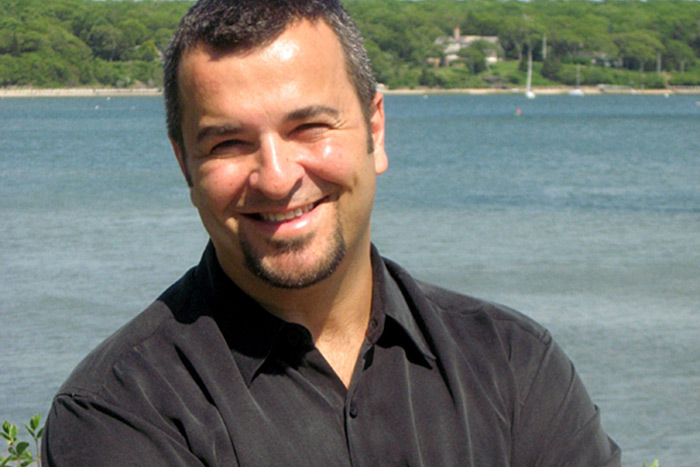Dr. Nicholas Kardaras: A Compassionate Approach to Addiction

Eight years ago I was teaching the treatment of addiction as a clinical professor at Stony Brook Medicine when I had the opportunity to meet Joe McKinsey, an Amagansett resident who wanted to open an addiction treatment program on the East End. Joe had been sober for over 30 years and had helped hundreds of people get sober over the years. He realized that there weren’t many quality treatment options—not just on the East End of Long Island, but on the entire East Coast.
As an addictions expert, I can say that most treatment programs are institutional cookie-cutter places that fail to treat the trying-to-recover addict with dignity and respect in a humane and comfortable setting. Truth be told, many people—even some clinicians—believe that addiction treatment should entail a certain amount of pain and suffering for the addict. And yet we wouldn’t think about punitive treatment for any of our loved ones who are suffering from cancer or mental illness. Unfortunately, the sad fact is that we still have a long way to go in our perception and treatment of people who suffer from the disease of addiction.
And let’s not make any mistake about it—addicts are indeed suffering. I have seen the devastation of addiction: the wrecked families; the hospitalizations; the loss of jobs; the emotional pain and suffering—and the deaths. No one voluntary chooses a self-destructive path. People predisposed towards addiction can fall down the rabbit hole of soul-crushing addiction if they walk down the path of drug and alcohol experimentation. Yet their family members—who are also greatly suffering as a result of their loved ones addiction—just see what appears to be a never-ending series of selfish behaviors, oftentimes not understanding the compulsive and irrational nature of this mental disorder.
Joe, having suffered through hospital institutional treatment himself, wanted to offer a more humane approach. We’ve seen this approach work amazingly well in Portugal, where they have focused on compassionate treatment that endeavors to re-tether the struggling addict to meaningful social contact and treatment—and not the punitive experiences that a “war on drugs” necessitates. Unfortunately, our war on drugs has failed; indeed, our own current drug czar, Michael Botticelli, a recovering alcoholic himself, has also advocated a more compassionate treatment approach (and, interestingly, hates his designation as drug “czar” as it echoes our failed war-like approach to addiction).
Joe was also able to forge a powerful relationship with Harvard’s Dr. Howard Shaffer—one of the world’s foremost addiction experts. Using many of Dr. Shaffer’s protocols and insights, the Dunes East Hampton was born. Initially offering residential treatment in a family-like setting, we have expanded our services to include addiction Out Patient services for local members of our community who want a deeper and more meaningful treatment experience. Clients not only participate in traditional psychotherapy, but can also get acupuncture, do equine and family therapy and engage in meditation and yoga as they seek to find sobriety and create balance in their lives.
As a local (Sag Harbor) resident myself, it has been my honor and privilege to see how effective this approach has been. It is truly incredible and rewarding to see people in our local community heal and get sober—and to then see their families heal as well. We’ve treated everyone from local merchants, to professionals, to fishermen. What we’ve seen is that when a person is ready to get clean and sober, compassionate and supportive treatment can be life-saving.
Dr. Nicholas Kardaras is one of the country’s foremost addiction experts and Executive Director of the Dunes—one of the world’s top rehabilitation centers. He is a former Clinical Professor at Stony Brook Medicine, has taught neuropsychology at the doctoral-level, is the author of How Plato and Pythagoras Can Save Your Life (Conari, 2011), is a frequent contributor to Psychology Today and Fox News, and has appeared on the CBS Evening News, NPR, Good Day New York and in Esquire, New York Magazine and Vanity Fair. Dr. Kardaras has just published a new book, Glow Kids, in which he examines how technology—age-inappropriate screen tech, with all of its glowing ubiquity—has profoundly affected the brains of an entire generation. Kardaras dives into the sociological, psychological, cultural and economic factors involved in the global tech epidemic with one major goal: to explore the effect all of our new technology is having on kids.



